Understanding Trading Psychology
Trading is not just charts, patterns, and financial instruments analyzing. While this technical education is important, but more important to good in emotions. Traders face mostly emotional challenges that influence their decisions, sometimes leading to irrational choices that hurt their overall performance.
Fear and greed-like emotions make traders bad decisions. Learn how emotions and biases affect trading, traders make good decisions, manage risk in a good way, and build long-term success in the financial markets.
Why Trading Psychology Matters
The human brain reacts to good and bad decisions. When trading does, traders detract from their path by their emotions. Poor trading psychology often leads to unnecessary risks, premature exits, or holding onto losing positions for too long.
Successful traders understand that discipline, emotional control, and good decision making is good profit key. By controlling emotions, traders control market ups and downs and remain consistent in their approach.
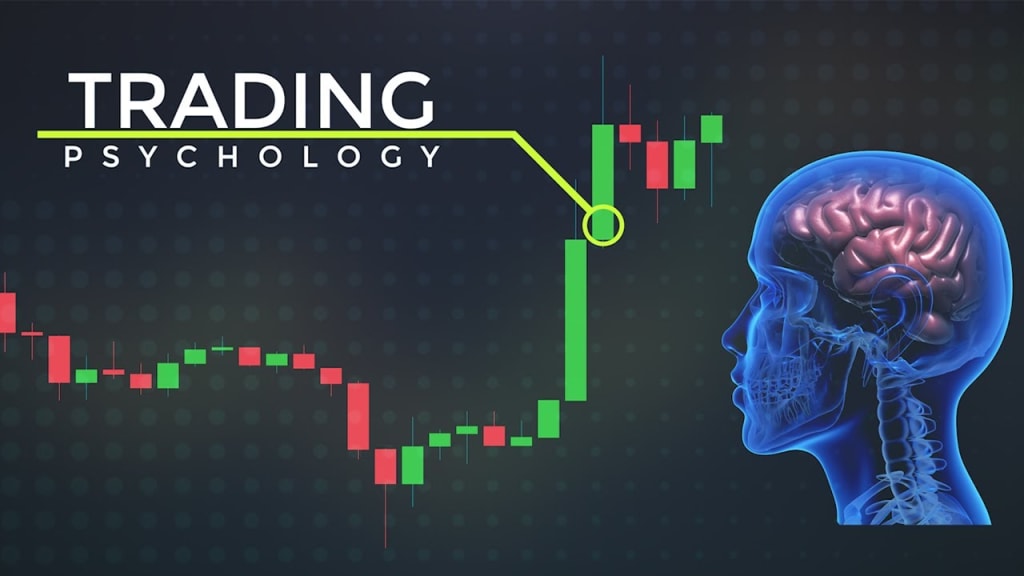
Common Psychological Biases in Trading
Cognitive Biases
Education-biased thinking is part of illogical decisions. Here are common cognitive biases trades face:
- Confirmation Bias: Trades ignore opposite evidence and take helpful information. This can lead to poor decision-making and a lack of fairness.
- Illusion of Control Bias: Some traders think that they have a good knowledge of market fluctuations. This overconfidence gave a large risk and ignoring market realities.
- Hindsight Bias: After a market incident, traders mostly accept that they “knew it all along”. This false thinking is a part of overconfident future trading.
- Availability Bias: Traders rely on the data that is easily available on the internet and do not find historical trends or broader market conditions.
- Anchoring Bias: On the base of market fluctuations traders cannot change their strategy and rely on certain prices, like the price they bought an asset.
Emotional Biases
Here are some common emotional biases that affect traders:
- Loss Aversion Bias: Traders mostly fear loss instead of taking profit. It can hold the stocks from its needs, hopping the market will go in its favor.
- Overconfidence Bias: Some traders give more focus on their skills and take more loss, which makes unusual losses.
- Self-Control Bias: Traders struggle with their emotions and quit their strategies.
- Status Quo Bias: Most traders oppose the changes of the market, and stick with known strategies, when market conditions demand adaptation.
- Regret Aversion Bias: The fear of making a decision that leads to regret can cause traders to avoid taking necessary risks or exit profitable trades too early.
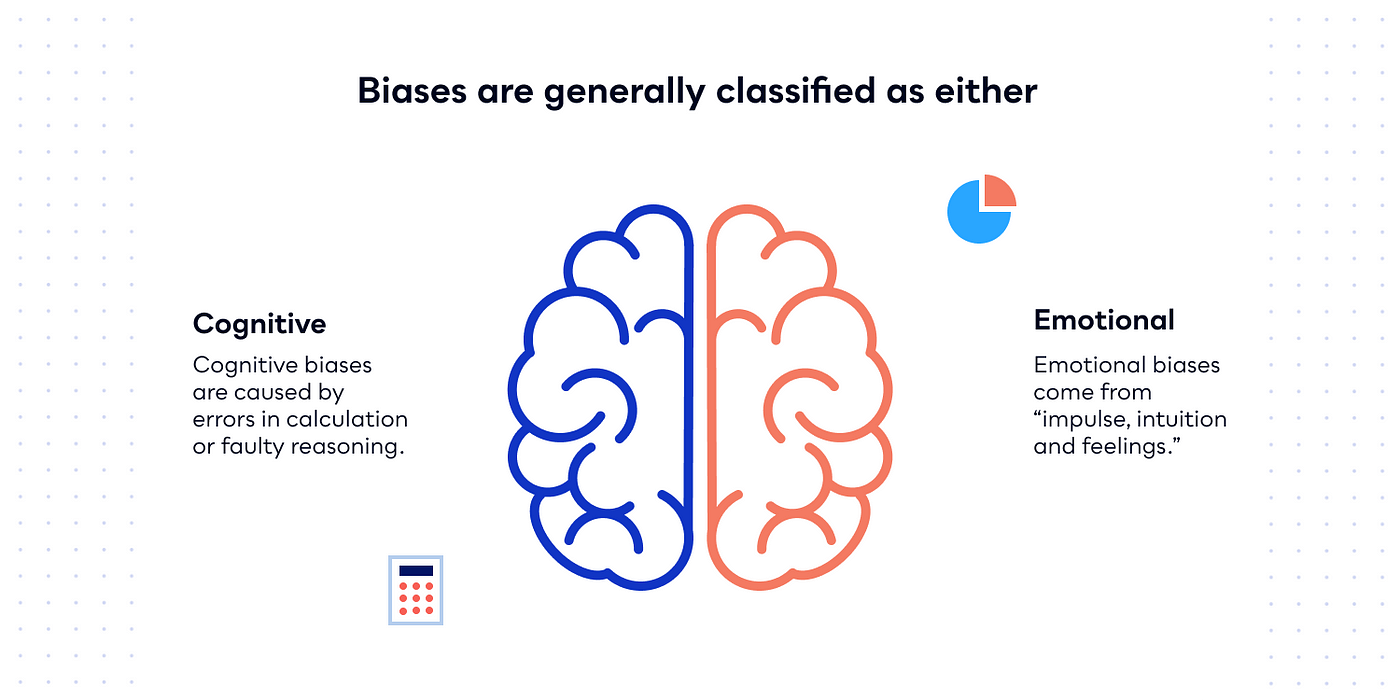
How Emotions Affect Trading Decisions
Traders mostly face fear, greed, excitement, and sadness which can affect their strategies. Here are some common emotional challenges in trading:
- Fear of Missing Out (FOMO): Traders see others as taking profit from the market and not analyzing the market and entering it forcefully. It provides an unnecessary risk.
- Following the Crowd: When traders follow other people instead of their own strategies they enter too late and out too early from the market.
- Impulsive Trading: Impulsive trading shows the result of overtrading, which can lead to losses and emotional exhaustion.
- Ignoring Stop-Loss Orders: Acception of losses can cause traders to ignore the stop-loss orders, which causes a great loss.
- Chasing Losses: Traders sometimes take great risks to overcome their losses, which causes a great loss.
- Premature Profit-Taking: Fear or impatience can prevent traders from maximizing gains.
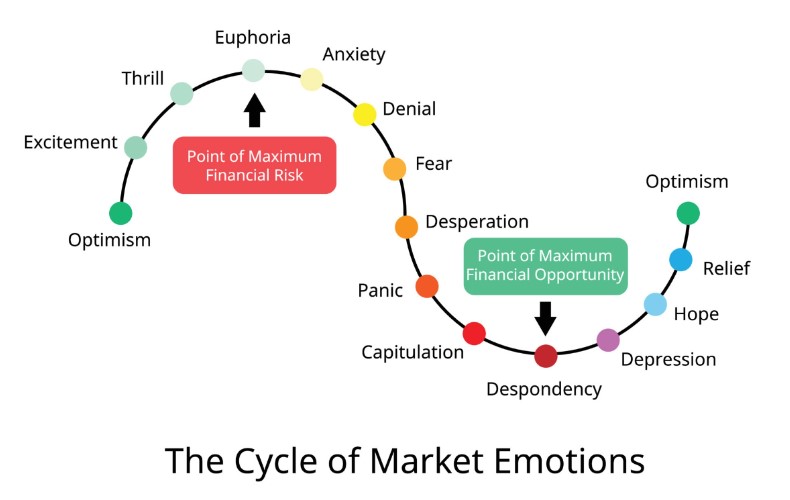
Strategies to Overcome Cognitive and Emotional Biases
While biases and emotions are a natural part of trading, they can be managed with the right strategies. Here’s how traders can improve their psychology:
Overcoming Cognitive Biases
- Education and Awareness: Learning about cognitive biases helps traders when they fall into mental traps.
- Objective Research and Analysis: Making decisions on the basis of data instead of emotions helps to reduce the impact of biases.
- Seeking Contrarian Perspectives: Engaging with traders who have different viewpoints can help challenge one’s own biases and promote a balanced decision-making approach.
Mitigating Emotional Biases
Self-Awareness: Understanding personal emotions helps trading to prevent making impulsive decisions.
Seeking Accountability and Support: Interacting with mentors, trading communities, or peers can help traders stay disciplined and manage emotions better.
Implementing Risk Management Strategies: Setting stop-loss orders, diversifying portfolios, and maintaining proper position sizing can help traders manage risk effectively.
Establishing Trading Rules: A good discipline strategy and sticking with previous rules can prevent emotional decision-making.
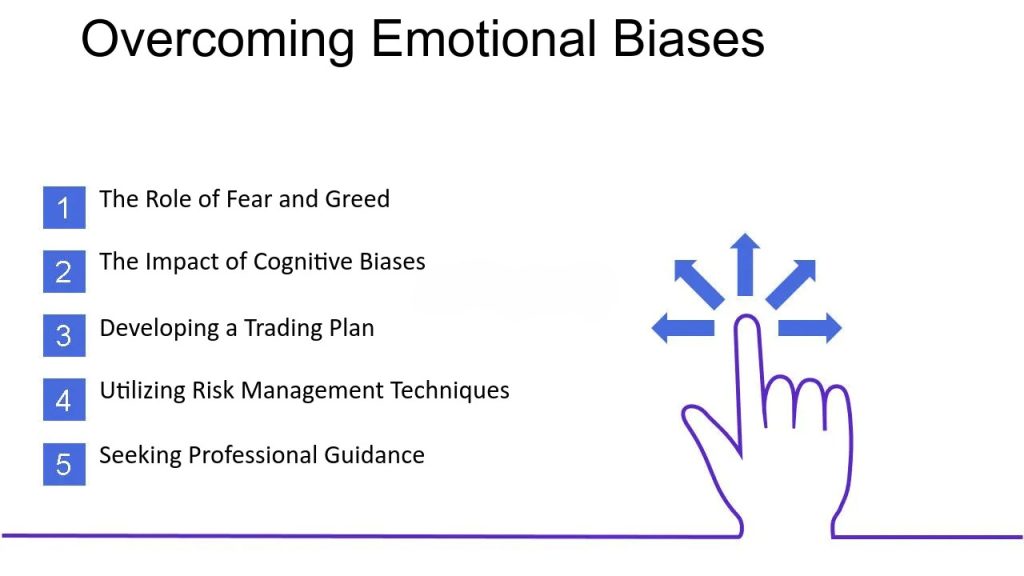
Developing a Strong Trading Mindset
A strong trading mindset is very important for long-term success. Here are some tips to cultivate a balanced approach to trading:
- Accept Losses as Part of the Game: Every trader faces losses. The main purpose is to learn from it and prevent emotional reactions that lead to further mistakes.
- Focus on the Process, Not Just the Profits: Traders focus on their own strategies, instead of excitement on taking profit.
- Practice Mindfulness and Emotional Control: Techniques like meditation and journaling help traders calm down from stress.
- Adaptability is Key: Market conditions change, and traders must be flexible in their approach to remain profitable.
- Maintain Discipline and Consistency: Sticking to a well-defined trading plan helps to prevent making impulsive decisions.
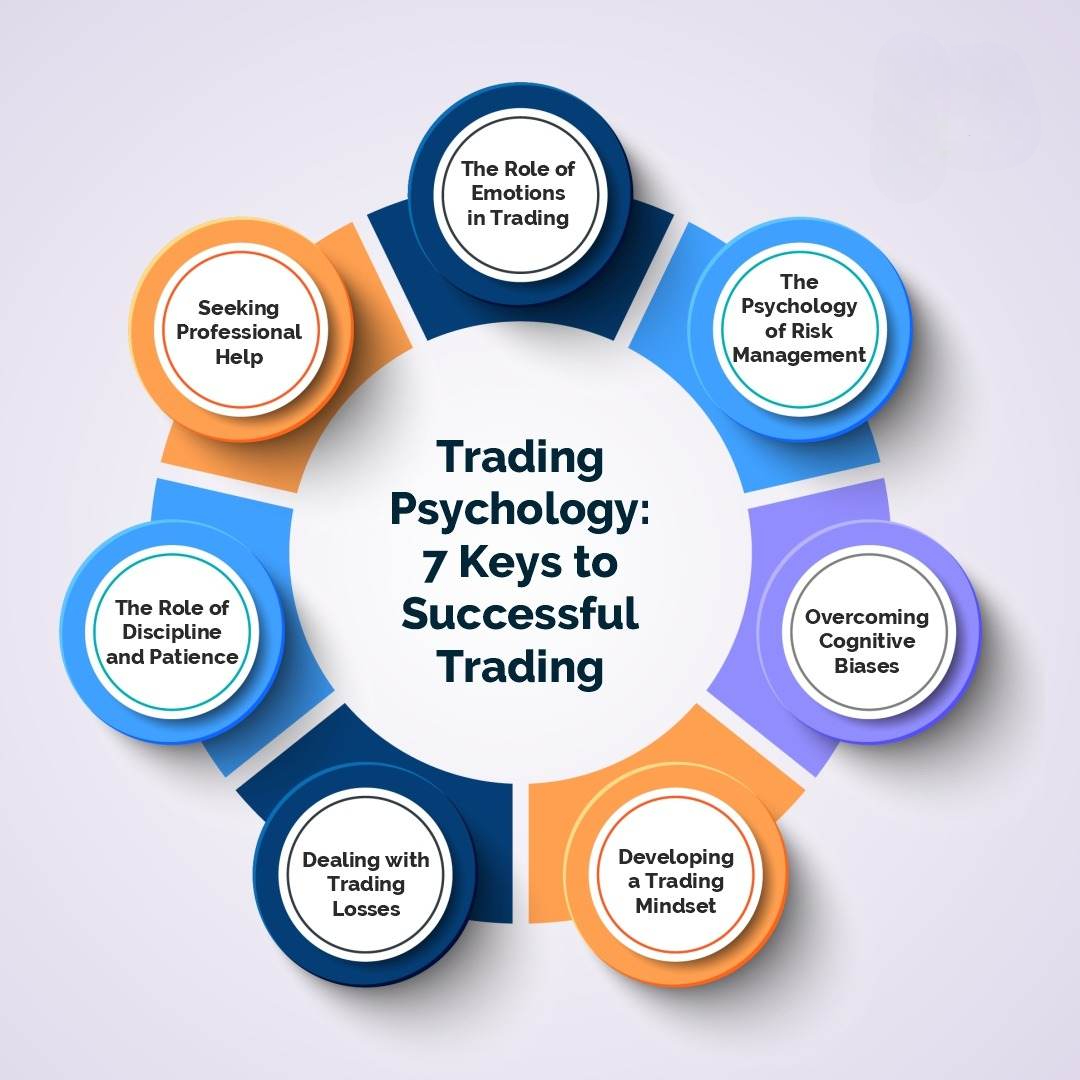
Conclusion
Trading emotions play an important role in trader success. Understanding how emotions and biases influence decision-making can help traders develop a disciplined and rational approach to trading. By controlling emotions, and cognitive biases, and keeping a strong mind, traders make good decisions, manage risk effectively, and build a sustainable trading career.